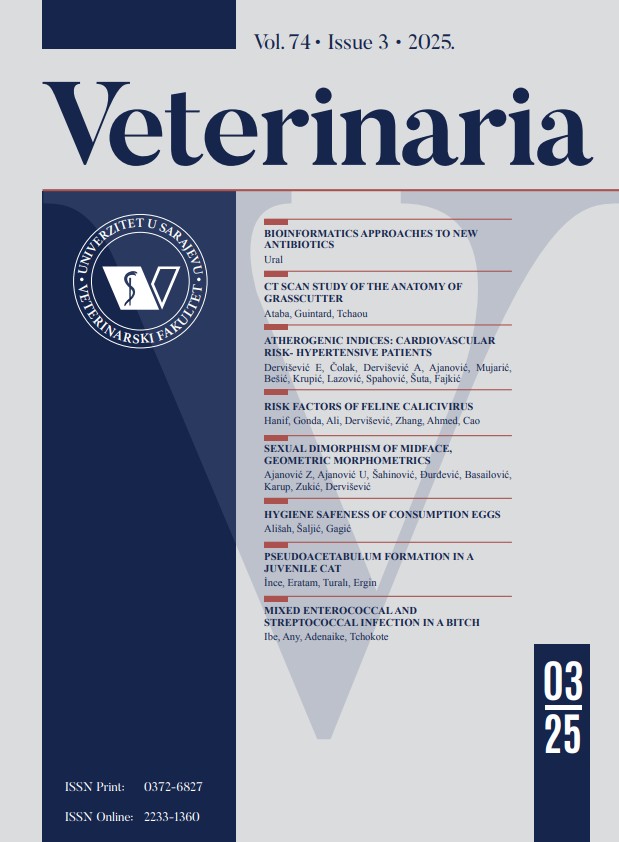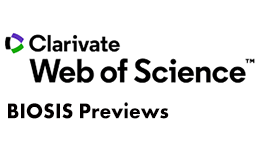Impact of alkaloid of Peganum harmala extract on oxidative stress biomarkers and histomorphometrics of testicular tissues in male mice (Mus musculus)
DOI:
https://doi.org/10.51607/22331360.2025.74.1.37Keywords:
Male mice, oxidative stress, Peganum harmala, testicular histomorphometricsAbstract
The study was designed to determine the impact of administration of P. harmala total alkaloid extract on testicular oxidative stress biomarkers and histomorphometrics of testicular tissues in male mice. After two weeks of acclimatization, twenty eight Swiss albino male mice (Mus musculus) aged 8 weeks were randomly divided into equally four groups each (n=7). Male mice received daily by gavage an alkaloid extract of P. harmala at different concentrations (0, 6.25, 12.5 and 25 mg/kg BW/day in carboxymethyl cellulose vehicle 0.5%) for 35 days. After the sacrifice of male mice, the testes were collected and stored at -80°C, while another set was immediately preserved in 10% formalin after removal from the animals. At the end of the trial, oxidative stress parameters and histomorphometric analyses of testicular tissues were evaluated. A significantly lower value of testicular MDA was observed in the treated groups with the total alkaloid extract of P. harmala compared to the control group (P<0.05). The mean level of superoxide dismutase increased in the groups treated with the 6.25 mg/ kg and 25 mg/ kg of the extract (0.44±0.07, 0.5±0.04 U/mg protein, respectively) compared to the control (0.4±0.08 U/mg protein). The results show a significant (P <0.05) increase of catalase activity in the group treated with a concentration of 25 mg/ kg. Additionally, the histological pattern of the testes in male mice treated with P. harmala extracts appears normal. The diameter of seminiferous tubules and germinal epithelium thickness appeared to increase in the P harmala-treated groups with different extract concentrations. It should also be noted that luminal height values were higher in male mice treated with a concentration of 25mg/kg than in male mice in the control group (P > 0.05). Based on our results, the total alkaloids of P. harmala appear to protect testicular tissues against oxidative stress, suggesting their potential as an antioxidant source. Furthermore, the positive effects of P. harmala seeds extract, especially at a dose of 25 mg/kg body weight, are interesting in relation to the histomorphometric measures of testes.

Downloads
Published
How to Cite
Issue
Section
License
Copyright (c) 2025 Hanane Derbak, Amira Chahrazad Benabdelhak, Omar Besseboua, El-Hacene Balla, Abdelhanine Ayad

This work is licensed under a Creative Commons Attribution 4.0 International License.







